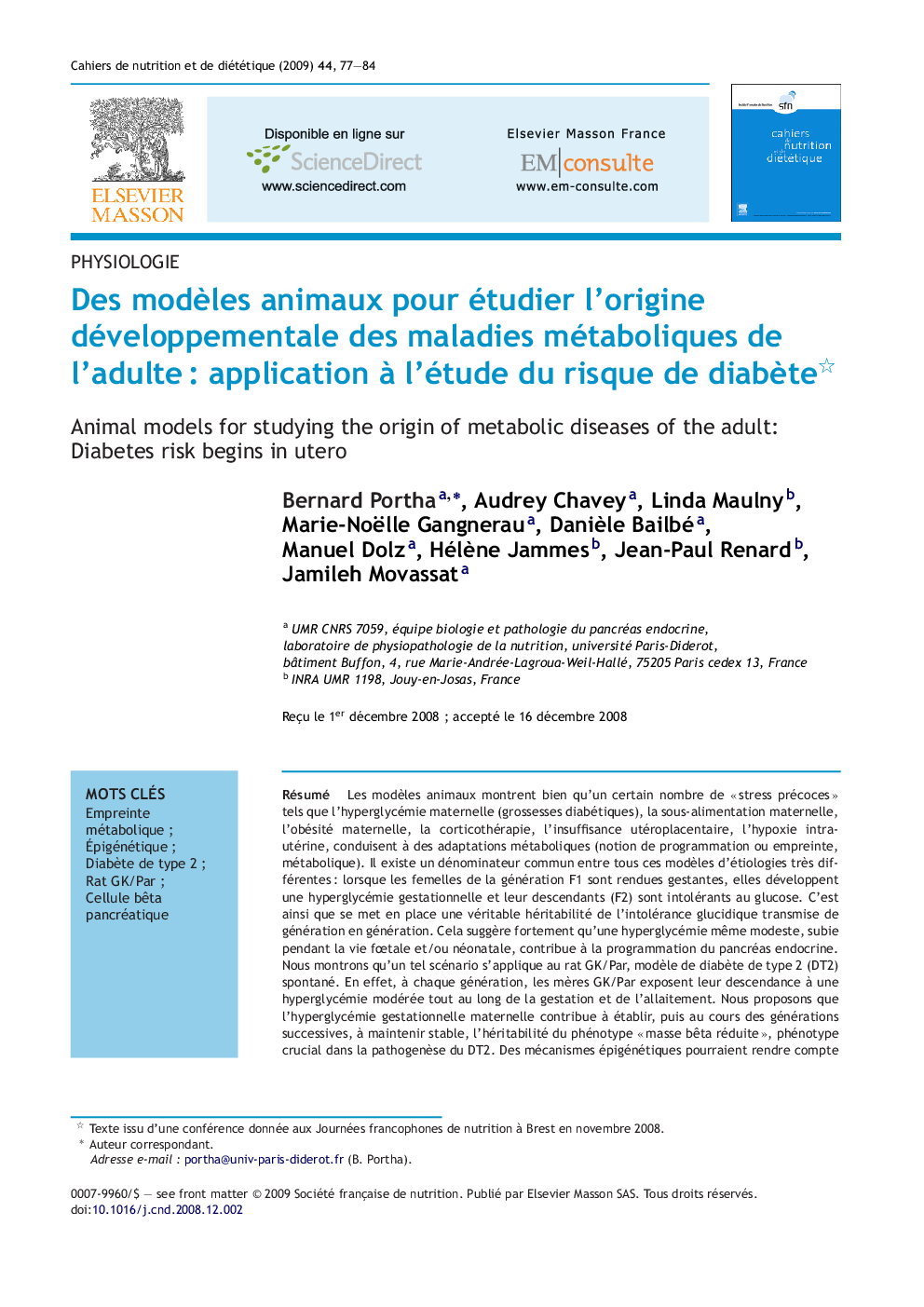| کد مقاله | کد نشریه | سال انتشار | مقاله انگلیسی | نسخه تمام متن |
|---|---|---|---|---|
| 2681783 | 1142458 | 2009 | 8 صفحه PDF | دانلود رایگان |
عنوان انگلیسی مقاله ISI
Des modèles animaux pour étudier l'origine développementale des maladies métaboliques de l'adulte : application à l'étude du risque de diabète
دانلود مقاله + سفارش ترجمه
دانلود مقاله ISI انگلیسی
رایگان برای ایرانیان
کلمات کلیدی
موضوعات مرتبط
علوم پزشکی و سلامت
پزشکی و دندانپزشکی
غدد درون ریز، دیابت و متابولیسم
پیش نمایش صفحه اول مقاله

چکیده انگلیسی
As abundantly illustrated in animal models, early life stressors such as maternal hyperglycaemia, maternal undernutrition, maternal obesity, corticosteroid therapy, uteroplacental insufficiency, or hypoxia, may “program” metabolic adaptations that favor survival initially, but are ultimately detrimental to adult health. Interestingly, there exists in fact one commonality between these models with quite different etiologies: in most of the cases, the altered maternal/fetal metabolism appears to be associated with a diabetogenic effect in the adult offspring with a permanent deficiency of the endocrine pancreatic function (F1). The combination of a latent diabetogenic tendency and the metabolic stress of pregnancy results in gestational diabetes. Such gestational diabetes per se is an inducing factor for impaired glucose tolerance and gestational diabetes in the next generation (F2). By this mechanism, gestational diabetes passes from one generation to another. In the present review, we propose that such a scenario is relevant to the GK/Par rat which is one of the best models of spontaneous type 2 diabetes. It is demonstrated that the defective beta-cell mass and function in the GK/Par model reflect the endocrine pancreas imprinting (the “low beta-cell mass” phenotype) by gestational diabetes, and that such phenotype is transmitted to subsequent generations. The molecular mechanisms mediating diabetes risk associated with a suboptimal perinatal environment have not been elucidated. However, several lines of evidence indicate that epigenetic modification may be a key unifying mechanism. Altered gene expression in GK/Par pancreatic tissue (Igf2, Igf1-R, Pdx1 genes are potential candidates) may be mediated by histone modification and DNA methylation effects on chromatin structure. Finally, epigenetic modifications could be transmitted to subsequent generations and contribute to “intergenerational programming” of diabetes risk.
ناشر
Database: Elsevier - ScienceDirect (ساینس دایرکت)
Journal: Cahiers de Nutrition et de Diététique - Volume 44, Issue 2, April 2009, Pages 77-84
Journal: Cahiers de Nutrition et de Diététique - Volume 44, Issue 2, April 2009, Pages 77-84
نویسندگان
Bernard Portha, Audrey Chavey, Linda Maulny, Marie-Noëlle Gangnerau, Danièle Bailbé, Manuel Dolz, Hélène Jammes, Jean-Paul Renard, Jamileh Movassat,